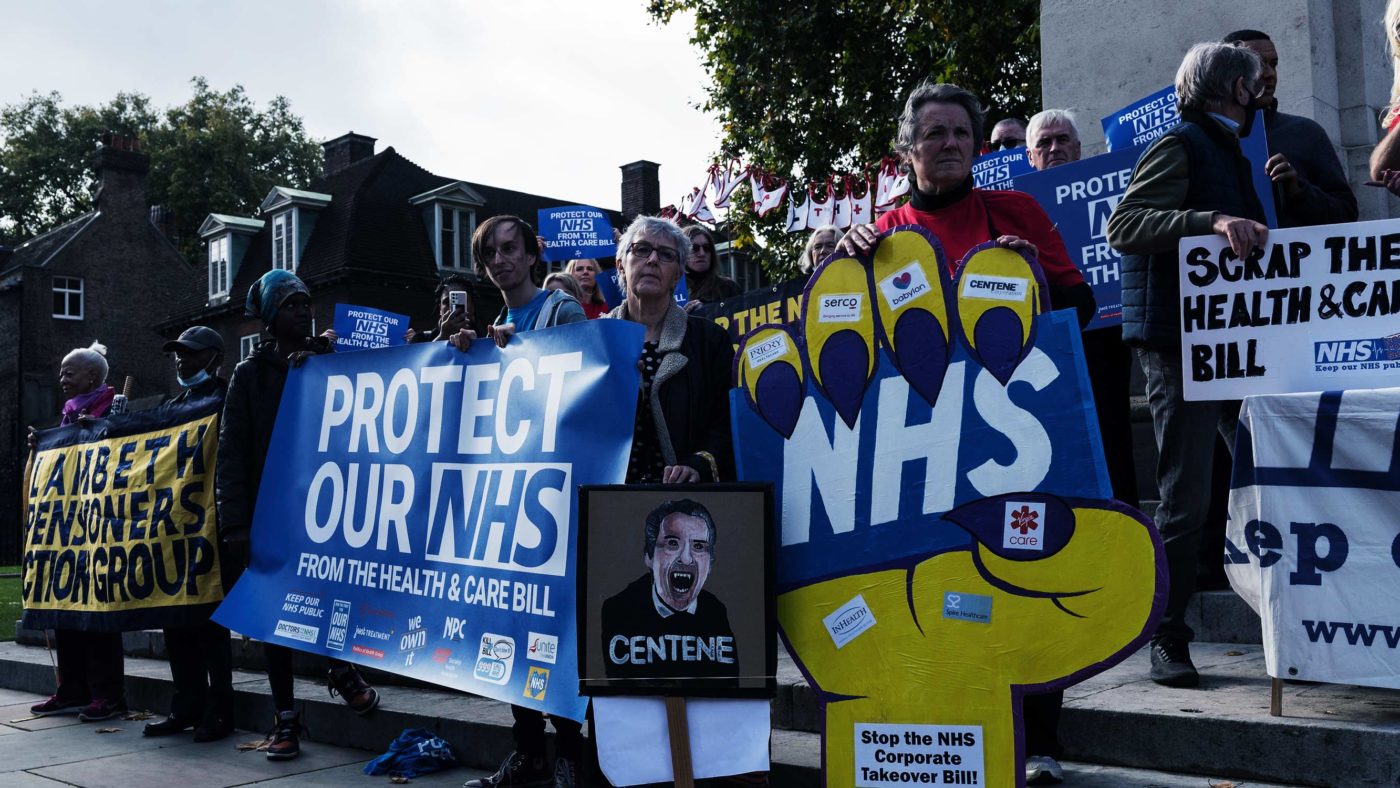The NHS is being privatised. Everybody knows that.
Or at least, every Twitter user does, because Twitter regularly talks itself into a frenzy over the threat of NHS ‘privatisation’.
For example, Jon Trickett, the MP for Hemsworth, tweeted the other day:
There are 22,143 fewer NHS Beds today than there were in 2010 – the equivalent of losing 8m NHS bed spaces a year
This has doubled waiting lists to over 5 million & was used to justify handing private health £10 billion to “clear the backlog”
Tory cuts to justify privatisation
— Jon Trickett MP (@jon_trickett) October 9, 2021
Zarah Sultana, the Corbynite MP for Coventry South, also claimed:
The Conservatives have never liked the idea of an NHS, truly free from the corrosive influence of private profit.
They want to break it up, piece-by-piece, privatising it by stealth. That's what their new NHS Bill is all about. pic.twitter.com/2qCNFxKvKe
— Zarah Sultana MP (@zarahsultana) July 14, 2021
There are several initiatives, such as Keep Our NHS Public, The Great NHS Heist, We Own It and Every Doctor UK, all dedicated to ‘exposing’ secret NHS privatisation plans. Although they all say the same thing, and often several times a day, they never seem to get bored with themselves. Twitter, of course, continues to lap up predictions of this kind, reliably rewarding them with thousands of likes and retweets.
But NHS privatisation paranoia is not just a Twitter phenomenon. It was already a thing when the future founders of Twitter were still children. Already in 1982, the Guardian warned that ‘creeping privatisation’ was leading to ‘the slow disintegration of the NHS’. A year later, a spokesman of the National Union of Public Employees predicted: ‘The government […] will privatise the NHS next year’.
Another year later, the campaign group London Health Emergency declared: ‘If privatisation is not nipped in the bud in 1984, it will spread like a malevolent weed through the NHS, strangling health care […] The time to fight is now!‘
But for a country that is so terrified of private healthcare, the UK has surprisingly little of it.
Only one in ten British hospitals are private. In France, that old bastion of neoliberal free-market fundamentalism, more than half of them are. (‘Private’, in this case, does not mean that those are only open to fee-paying patients or people with private health insurance: France’s universal national health insurer covers the bills for everybody.) In Belgium and Germany, three quarters of all hospitals are private, and in the Netherlands, all of them are.
But of course, healthcare is not just the hospital sector. Let’s have a look at total spending. The NHS spends a little over three quarters of its budget on itself, and the remainder on services it purchases from external providers. ‘External’ is a very broad term, which covers everyone who is not directly employed by the NHS. This includes GPs, who are either self-employed, or employed by their surgery. They alone already account for about 7% of the budget, although none of the privatisation prophets seem to have a huge problem with them. (Quite a lot of them are GPs, so they are themselves part of the dreaded private sector they keep warning us about. Hopefully, they are not too terrified of themselves.)
It also includes dentists, pharmacists and optometrists, which, again, nobody seems to have a huge problem with. And it includes local authorities and devolved administrations, which are ‘external’ as in ‘not part of the NHS’, but clearly not private. The sort of private healthcare companies that people get panicky about account for less than a tenth of the healthcare budget, and that includes the non-profit ones (see p. 220 here).
Privatisation prophets would, of course, claim that this is just the beginning: the share of the private healthcare sector may be small in absolute terms, but is growing rapidly, and at an ever-accelerating pace.
The problem with that claim is that the share of the private healthcare sector is not growing. Neither at an accelerating rate, nor at a steady one, or even a diminishing one. It is just not growing at all. So if there is a secret plan to privatise the NHS, it is not working terribly well.
Then again: given their handling of Universal Credit, Brexit, and the pandemic, that is probably what a conspiracy run by the British government would look like.
Click here to subscribe to our daily briefing – the best pieces from CapX and across the web.
CapX depends on the generosity of its readers. If you value what we do, please consider making a donation.


